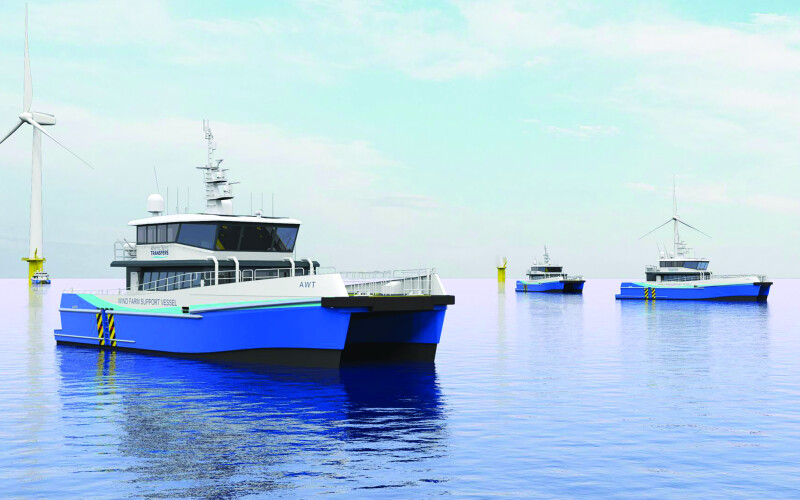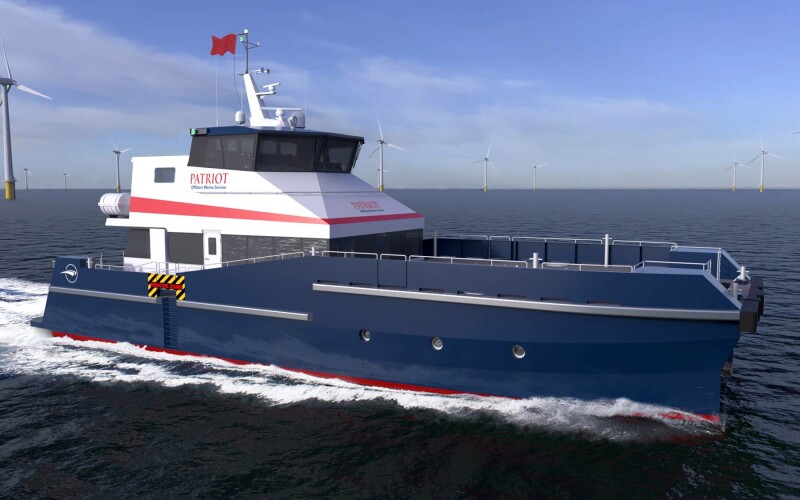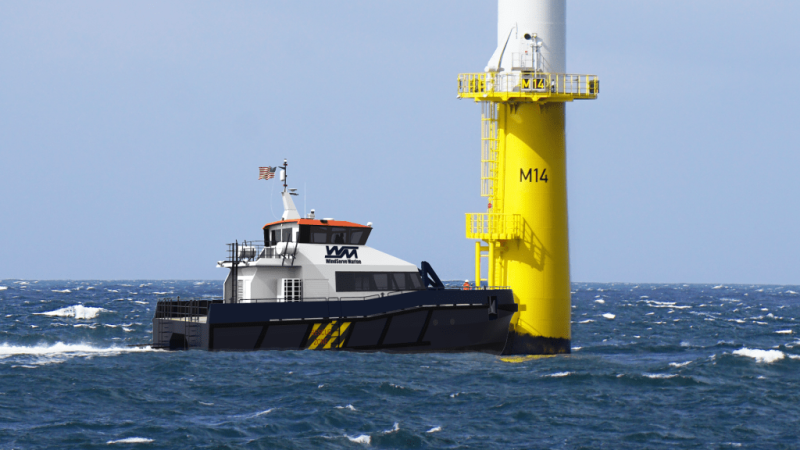Most of the talk surrounding offshore wind has been fairly upbeat in recent years, with offshore wind proponents talking about how much power will be produced, how many jobs will be created, and how many new wind vessels will have to be built at U.S. shipyards.
Then reality set in as U.S. offshore wind farm projects began to face delays from regulators, local opponents, and others. In February, energized by social media and publicity over winter whale strandings, opponents of offshore wind projects almost succeeded in pushing one New Jersey town to literally pull the plug on Ørsted’s Ocean Wind 1 plan.
U.S. shipyards that have broken into the offshore wind crew transfer vessel (CTV) market have differing outlooks on how the emerging sector will shake out.
St. Johns Shipbuilding, with seven CTVs either underway or planned, is understandably bullish. “The market is like a freight train and it’s going to be very difficult to stop. It may slow down a little bit, but it’s not going to stop,” Jim Cutts, who heads up the company’s CTV program, told WorkBoat.


But others, such as Peter Duclos, president of Gladding-Hearn Shipbuilding, with a single CTV set for commissioning later this year, sees inflation as a major “opponent.”
“I don’t see the market as being very encouraging at this very time. There’s hesitancy due to inflation, and that’s an understandable problem.”
Marcia Blount, president of Blount Boats Inc., which delivered the first U.S.-flagged CTV in 2016 and has two CTVs currently under construction, agreed. “My sense is that tenders for CTV have slowed in coming out mostly because of inflation over the last two years. There’s the supply chain issues in getting deliveries, but it’s mostly due to the increased costs the developers are facing.”
But offshore wind still has a promising future, one that Blount said hinges largely on getting costs stabilized. “There’s definitely going to be a future. There’s definitely going to be wind farms built, but I do see a lot of uncertainty.” Thus, as always, the future is anybody’s guess.




